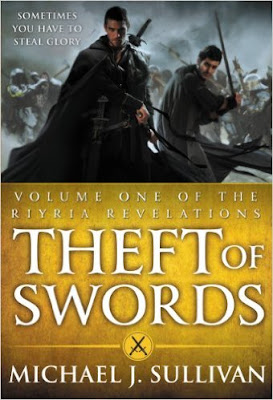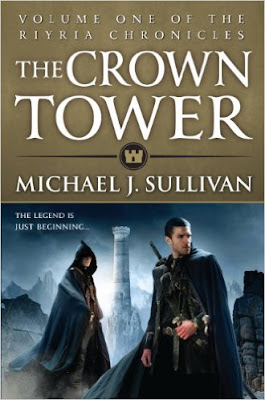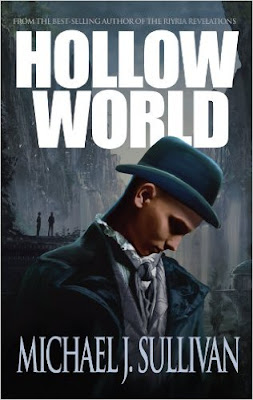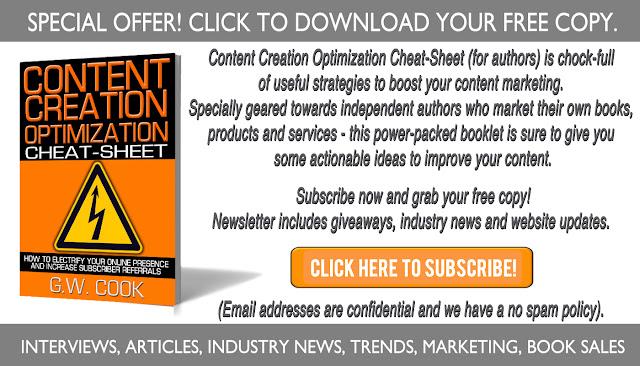Today's guest post is from fellow self-publisher and author, Dr Gary Webb. Gary has had remarkable success with gathering great reviews for his books and boosting sales as a result. The following post reveals some of his secrets and tips for gathering reviews. Please make sure to sign up to Gary's Publishing Points newsletter here and check out his informative books on publishing and sales here.
Getting More and Better Reviews
Dr. Gary Webb
Many
authors are naïve about reviews. They assume that after writing their
spectacular book, reviews will be automatic. That is as foolish as
believing that every book published will sell millions. Such authors
don't understand how important reviews are for increasing book sales
and rankings.
If
you hope to get more and better reviews, you cannot afford to be passive.
I recently surveyed over 100 books on Amazon. Even though these books are
all over five years old, they still have not received a single review between
them.
Have
you ever noticed how often a new, bestselling book releases with 25 or more reviews
on its first day? That is no accident. Not only that, but it will
generally continue accumulating more reviews over time. Many of those
reviews will take their cue from the ones posted within the first few days.
Once
an author realizes how reviews can help increase sales, they are likely to
become more engaged in getting them. Too often, however, authors use
methods that produce little or no results. They chase reviews by posting
on dozens of Facebook review groups. Or, they send hundreds of Tweets to
their followers and unknown #readers.
Some
will use the free book promotions, with hopes that five-star reviews will
flood in. These are the easiest methods to get book reviews; but, they
are also the least effective. Many authors complain about negative reviews from
readers who got their book for free during this type of promotion.
Instead
of broadcasting pleas for reviews across the entire internet, I recommend
focusing on carefully chosen reviewers, especially during a book launch.
The key to better
reviews is BETTER REVIEWERS.
The key to more
reviews is MORE REVIEWERS.
To
ensure success, every effort to get more and better reviews should focus on
finding high quality reviewers. Find people who have favorably reviewed
books like your own.
Let
me be very blunt about this issue. Not all reviewers are equal.
Some have a tendency to give a high star rating with little comment on the
value of the book. Others may write a lot without saying much.
As
an author, it is best to find reviewers who often give high ratings and
remarks that motivate others to buy the books they review.
According
to the Pew Research Center, only about 23% of American adults read even one
book each year. That means they did not open a paperback, turn on a
Kindle, or listen to an audio book in the previous 12 months. The number of
readers in our country is rapidly declining. Among those readers, even a
smaller number have ever written a book review. A former executive with
Amazon has estimated the number at 2-5% of buyers. Good book reviewers
are scarce!
Simultaneously,
almost one million new books are available every year. Bottom line:
you have lots of competition for getting any reviews.
I
want to share a simple approach that is the most reliable method for
gaining more and better reviewers – and reviews. As I said, it is simple,
but that does not mean it is easy. Using this method does not limit sending a
blast to Facebook review groups. However, your goal should be
building a list of reviewers who have a history of reviewing books like yours.
A Step-by-Step
Strategy to Get Reviews
Your
aim is to collect a list of reviewers who can be contacted to write
great reviews for your books. At first, my reviewers list came
from two sources. I contacted those who were following me on my Facebook
account asking them to do reviews. Secondly, I used my mailing list. Between
the two methods, I found about fifty prospective reviewers.
Understandably, few of these proved to be the reviewers I wanted. In fact, I
only got about five to agree and two who actually wrote a review.
The
following method is where I achieved the best results I getting quality
reviewers and reviews for my titles. Here are the practical steps to build a
solid core of reviewers for your books:
1. Use
Amazon to find books like your own that have many high-rated reviews.
You
can find such books by searching for keywords in the Amazon search bar.
Try using the topic of the book for nonfiction or the sub-genre for
fiction. Try looking for similar books in the same categories as
your book. If you are unsure on a particular book, go to its sales page,
read its description, and/or “Inside the Book” feature
2. Develop
a list of reviewers who have written good reviews.
After
finding books like your own, you can easily see the best reviews for those
books. When you’ve found one, click on the reviewer’s name to look at
his/her reviewer profile. I don’t bother with fake names like “Amazon
customer” because those are seldom useful for building a list.
When
looking at a reviewer profile, quickly check to see if it includes any contact
information. Some reviewers give an email address, a website, or a
social media contact. When I've found a reviewer who does good reviews, I
have even taken another step to look them up on Facebook.
Adding to
this manual technique, I have also used a software app called "Book
Review Targeter" by Debbie Drum. It allows me to search hundreds of
book listings for good reviewers with much less time invested. Although it is a
little expensive, it’s a great investment for authors who intend to write
several books. You can get it at http://getbookreviewsnow.com. Another
approach is to hire a virtual assistant to do this tedious research for
you. One of these is Alexandra Marquez from fiverr.com. You can
reach her at http://bit.ly/26d48P6. I’m sure many others
are available on fiverr and on upwork.com.
Some
authors suggest looking for and contacting Amazon’s top book reviewers.
These reviewers can be found via this link http://www.amazon.com/review/top-reviewers. I,
however, have not found this particular method to be worth my time. So many
authors target these reviewers, that your chance of getting a review is low. Sometimes
these reviewers can also be the most critical. Their insight might be
helpful to improve your writing skills, but a bad review during the early
days after a book’s release can hurt sales and create future trends for the
reviews that follow.
4. Develop
a listing or spreadsheet for these reviewers.
After
finding potential reviewers, I use an Excel spreadsheet to track the review
process. On the spreadsheet, I set up columns for several kinds of information.
I have columns for the reviewer’s name, contact (email) address,
date of first contact, two follow-ups, date of review, and date of
appreciation. When possible, I use email addresses for contacts.
Sometimes, I also use a Facebook message link. If you’d like a copy of my
spreadsheet, just contact me (gary@mgwebb.net ).
5. Contact
the reviewers via email or social media to ask for a review in exchange
for a free advance copy.
I
usually send an email like the one below. I send it about two months
before the book release or my target date for getting more reviews.
Subject:
Book Review Request
Hello, [[reviewer’s name]]
My name is [your name], an author of
books about [niche or category name]. My
next release will be [name of the book], which should be live on Amazon on
[release date]. It will include:
[Bullet points about the benefits and
features of the book].
I am currently seeking 30-50
high-quality reviewers who will post an honest review of this book in exchange
for an advance review copy. The advance
copies should be available for distribution on [date you plan to send the
review copies]. Reviewers will have
their choice of a Mobi, ePub, or PDF version of [name of the book].
I have read several of your reviews and
was impressed with your thoroughness and helpful approach. Would you be willing to read and post your
review of [name of book] soon after its release on [release date]? If so, please email me at [your email address]. If you have questions or comments, please
contact me.
[Your name]
I
have given review copies in two ways. I have directly sent them as
an email attachment, or by sending a link to bookfunnel.com
.
7. Update
the record to show those who agree to review the book.
I list
the date they agreed to write a review and the version of eBook I sent
them. I do not drop the others from the spreadsheet. I keep them
for two reasons. First, I will contact them when I have other books
available. Even if they don’t review one book, they may be interested
in the next one. Secondly, when the book live on Amazon, I send them an
email or Facebook message to let them know it is available. You’d be
surprised how often I’ve sold books to people after the release — and later
gotten a review from them! Make sure to send a copy of the book in the format
they prefer (pdf, mobi, or epub).
Many
authors only send pdf versions. I have found that I get a better response when
I offer all three versions.
9. Follow-up
with a reminder near the release date or deadline.
Remember
that your reviewers are doing you a favor. They could just read the
book with no regard for your deadlines. They have busy lives of their
own. So, it may not be surprising for a few of them to forget writing
a review. I've heard that the normal response for getting reviews posted is
less than one in 25. I have not seen that. Usually, one out of every
three that I've asked to write a review agree to do it. Of those, one out
of two actually write and post one. I think gentle reminders are the key.
I
contact my potential reviewers by email. I let them know that I'm
looking forward to reading their review. I also describe how much reviews like
theirs can help other readers to find and enjoy my book.
Sometimes,
I’ve gotten responses that admit having forgotten to write a review. I’ve
also received a few emails saying they never received a copy of the
book when I first sent it out.
10. Record
the date each review is posted.
This
will help you see how prompt these reviewers are. I can keep that in mind
for future books. I also will enter a 5* (or whatever ‘star’ rating they
gave the book) to show that that they rated my book with a five-star (or other)
ranking.
11. Send
a note of appreciation to your reviewers.
These
reviewers are crucial allies in your success. A few may even become part
of your launch team for future books. Take the time to show them your
appreciation. A quick email will do the job.
Later,
you should try to be a help by sending them special links to articles or free
books. You should stay in contact like this between your own book releases.
You could send them an offer for a lead magnet that gives them a chance
to opt into your mailing list. Think about building a good connection with
them. If you do, you improve your chances of getting more and better
reviews from all your reviewers.
There
is no magic in getting great reviews. Even the best authors have gotten
some very negative reviews. The best answer to negative reviews is a
strong foundation of well-written, high-rating reviews. Then, keep adding more.
If your book is good quality, it will soon begin accumulating
some "organic reviews."
When unsolicited, organic reviews come,
you should know what I would suggest to do in response, right? By now,
you know that I will find that reviewer's contact address and add them to my
spreadsheet. I will probably even send a note of appreciation. I
urge you to do the same!
Dr.
Gary Webb is best-selling author of Book
Reviews That Sell: Discover the Secrets of Getting a Boatload of Great Reviews. It is currently available on Amazon.










